Related Research Articles

Satan, also known as the Devil, and sometimes also called Lucifer in Christianity, is an entity in Abrahamic religions that seduces humans into sin or falsehood. In Judaism, Satan is seen as an agent subservient to God, typically regarded as a metaphor for the yetzer hara, or "evil inclination". In Christianity and Islam, he is usually seen as a fallen angel or jinn who has rebelled against God, who nevertheless allows him temporary power over the fallen world and a host of demons. In the Quran, Shaitan, also known as Iblis, is an entity made of fire who was cast out of Heaven because he refused to bow before the newly created Adam and incites humans to sin by infecting their minds with waswās.
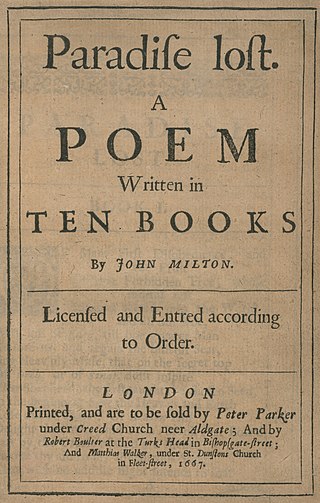
Paradise Lost is an epic poem in blank verse by the 17th-century English poet John Milton (1608–1674). The first version, published in 1667, consists of ten books with over ten thousand lines of verse. A second edition followed in 1674, arranged into twelve books with minor revisions throughout. It is considered to be Milton's masterpiece, and it helped solidify his reputation as one of the greatest English poets of all time. The poem concerns the biblical story of the fall of man; the temptation of Adam and Eve by the fallen angel Satan and their expulsion from the Garden of Eden.

Catch-22 is a satirical war novel by American author Joseph Heller. He began writing it in 1953; the novel was first published in 1961. Often cited as one of the most significant novels of the twentieth century, it uses a distinctive non-chronological third-person omniscient narration, describing events from the points of view of different characters. The separate storylines are out of sequence so the timeline develops along with the plot.

Albert Ellis was an American psychologist and psychotherapist who founded rational emotive behavior therapy (REBT). He held MA and PhD degrees in clinical psychology from Columbia University, and was certified by the American Board of Professional Psychology (ABPP). He also founded, and was the President of, the New York City-based Albert Ellis Institute. He is generally considered to be one of the originators of the cognitive revolutionary paradigm shift in psychotherapy and an early proponent and developer of cognitive-behavioral therapies.
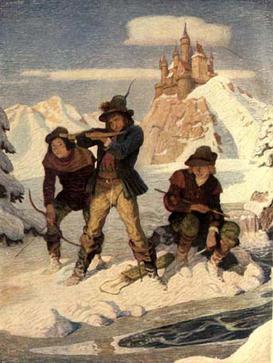
The Mysterious Stranger is a novel attempted by the American author Mark Twain. He worked on it intermittently from 1897 through 1908. Twain wrote multiple versions of the story; each involves a supernatural character called "Satan" or "No. 44". All the versions remained unfinished.
Daimon Hellstrom, also known as the Son of Satan and Hellstorm, is a fictional character appearing in American comic books published by Marvel Comics.

Benjamin Lebert is a German writer. He was born in Freiburg. His first novel Crazy, was published when Lebert was only 16 years old. The international bestseller about a handicapped teenage rebel has been licensed to 33 nations and was made into a feature film by Hans-Christian Schmid, and has drawn comparisons to Jerome Salinger's Catcher in the Rye. In 2003, Lebert published a second novel, Der Vogel ist ein Rabe.

A catch-22 is a paradoxical situation from which an individual cannot escape because of contradictory rules or limitations. The term was coined by Joseph Heller, who used it in his 1961 novel Catch-22.
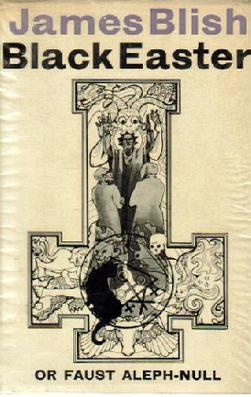
Black Easter is a fantasy novel by American writer James Blish, in which an arms dealer hires a black magician to unleash all the demons of Hell on Earth for a single day. It was first published in 1968. The sequel is The Day After Judgment. Together, those two novellas form the third part of the thematic After Such Knowledge trilogy with A Case of Conscience and Doctor Mirabilis. Blish has stated that it was only after completing Black Easter that he realized that the works formed a trilogy.
The Devil, appears frequently as a character in literature and various other media. In Abrahamic religions, the figure of the Devil, Satan personifies evil.
Frank Schaeffer is an American author, film director, screenwriter, and public speaker. He is the son of theologian and author Francis Schaeffer. He became a Hollywood film director and author, writing several internationally acclaimed novels depicting life in a strict evangelical household including Portofino, Zermatt, and Saving Grandma.

Crazy as Hell is a 2002 psychological film that is based on the 1982 novel Satan: His Psychotherapy and Cure by the Unfortunate Dr. Kassler, J.S.P.S. by Jeremy Leven and follows Dr. Ty Adams, an aggressive and overconfident psychiatrist producing a documentary film about a nearby state-run mental hospital. While treating a new patient who claims to be Satan, Dr. Adams begins to question his own perceptions.
Paradise Lost has had a profound impact on writers, artists and illustrators, and, in the twentieth century, filmmakers.
Hell is a common setting found in art, literature, and popular culture.
Jeremy Leven is an American screenwriter, director, producer, and novelist. Born in South Bend, Indiana, Leven lives in Woodbridge, Connecticut, Paris, and New York City.
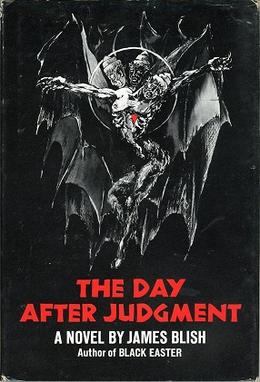
The Day After Judgment is a 1970 fantasy novel by American writer James Blish. It is a sequel to the 1968 novel Black Easter: they have been subsequently republished in 1990 as a single book called The Devil's Day.
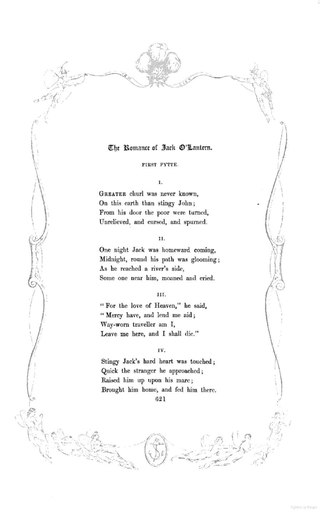
Stingy Jack O'Lantern, also known as Jack the Smith, Drunk Jack, Flaky Jack or Jack-o'-lantern, is a mythical character sometimes associated with All Hallows Eve while also acting as the mascot of the holiday. The "jack-o'-lantern" may be derived from the character.

Christ and Satan is an anonymous Old English religious poem consisting of 729 lines of alliterative verse, contained in the Junius Manuscript.
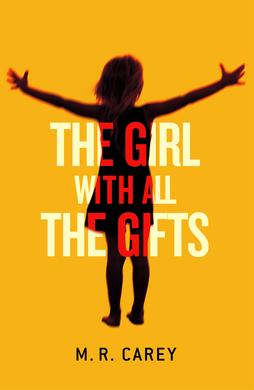
The Girl with All the Gifts is a science fiction novel by M. R. Carey, published in June 2014 by Orbit Books. It is based on his 2013 Edgar Award-nominated short story Iphigenia In Aulis and was written concurrently with the screenplay for the 2016 film. It deals with a dystopian future in which most of humanity is wiped out by a zombie-like fungal infection.

When Breath Becomes Air is a non-fiction autobiographical book written by American neurosurgeon Paul Kalanithi. It is a memoir about his life and battling stage IV metastatic lung cancer. It was posthumously published by Random House on January 12, 2016.
References
- ↑ Gallagher, Ann (September 1982). "Satan, His Psychotherapy and Cure by the Unfortunate Dr. Kassler, J.S.P.S." Best Sellers 1982-09. 42 (6): 220.
- ↑ Andrews, Peter (1982-08-01). "God is a Character". The New York Times. ISSN 0362-4331 . Retrieved 2023-01-01.
- ↑ "Book Reviews, Sites, Romance, Fantasy, Fiction". Kirkus Reviews. Retrieved 2023-01-01.
- ↑ Clark, Jeff (May 15, 1982). "Satan, His Psychotherapy and Cure by the Unfortunate Dr. Kassler, J.S.P.S.". Library Journal : 1101.
- ↑ Thomas, Kevin (2002-09-27). "Talking of Sanity in 'Crazy as Hell'". Los Angeles Times. Retrieved 2023-01-01.